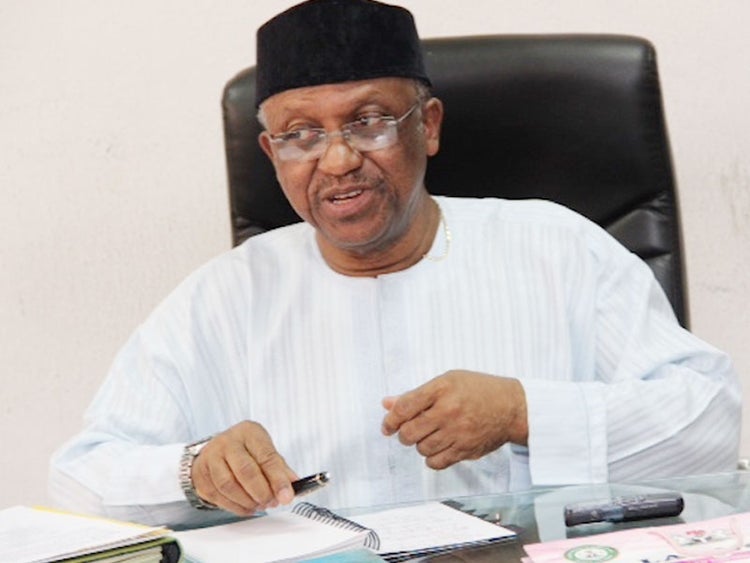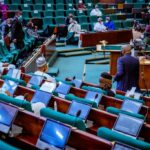Minister of Health, Dr. Osagie Ehanire, has claimed that there are enough doctors in Nigeria. He made the assertion in Abuja on Tuesday, August 23, 2022 during a press conference.
He said, “…We have heard complaints of doctors who are now leaving the system, but there are actually enough doctors in the system because we are producing up to 2,000 or 3,000 doctors every year in the country and the number leaving is less than 1,000.”
Recall also that the former Minister of Labour and Employment, Dr. Chris Ngige, had in 2019 while answering a question on brain drain during a television programme maintained that there were more than enough doctors in the country.
“I am not worried about doctors leaving the country. We have surplus. If you have surplus, you export. It happened some years ago. I was taught chemistry and biology by Indian teachers in my secondary school days, they are surplus in their country. We have surplus in the medical profession in our country. I can tell you this. It is my area, we have excess,” he had said.
Verification
CLAIM 1: Does Nigeria have enough doctors?
Verdict: False
Findings by Daily Trust contradict the minister’s claim that there are enough doctors currently practising in Nigeria.
According to data from the World Health Organization (WHO), in 2003, three (2.65) doctors were available to attend to 10,000 people in the country. But the number peaked at four (4.49) in 2016 and (3.81) 2018.
Also, a recent report by WHO revealed that for every 10,000 persons in Nigeria, there are four doctors available to treat or attend to them. However, WHO’s recommendation of doctor-patient ratio is one doctor per 600 patients.
WHO data on global doctors’ population among countries has shown that some African countries have more doctors to attend to their population than Nigeria.
The WHO’s data capture countries’ ratio of available doctors per 10,000 people in each nation.
Mauritius (27 doctors in 2020), Tunisia (13 in 2017), Cape Verde (8 in 2018), South Africa and Egypt (7 each in 2019), Gabon (6 in 2018) have more doctors to attend to their populations than Nigeria.
Although Nigeria has more doctors compared with some other countries within the same African region such as Angola, Kenya, Benin, Burkina Faso, Chad, Mali, Cameroon and Niger.
As of 2018, Angola and Kenya had two doctors ratio of 10,000 population. In 2019, Benin, Burkina Faso, Chad, Mali and Cameroon had less than one doctor ratio per 10,000 population. And, Niger has had less than a doctor to 10,000 citizens since 2004.
In November 2021, the Nigeria Medical Association (NMA) President, Innocent Ujah, had in his address at the virtual eighth biennial and scientific xonference and annual general meeting of the Medical Women Association of Nigeria (MWAN), Kaduna state chapter, noted that “the current doctor to population ratio in the country is about one doctor to between 4,000 and 5,000 population.
“This falls short of the one doctor to 600 population as recommended by the World Health Organisation. This means that we need about 303,333 medical doctors now, and at least 10,605 new doctors annually to bridge the manpower gap in the health sector,” he said.
The Executive Director of a cancer advocacy group, Project PINK BLUE, Runcie Chidebe had disclosed last year that Nigeria will have a shortage of 50,120 doctors and 137,859 nurses by 2030 due to mass migration of health workers to foreign countries.
He noted that in Nigeria, the density of physicians to a patient is 4 doctors per 10,000 patients and 16.1 nurses and midwives per 10,000 patients, which he said is less than the World Health Organization (WHO) recommendations of 1 doctor to 600 patients and the critical threshold of 23 doctors, nurses and midwives per 10,000 patients.
Corroborating this, the Executive Director/Chief Executive Officer of the National Primary Health Care Development Agency (NPHCDA), Dr. Faisal Shuaib, told journalists at a primary healthcare summit in Abuja in March this year that: “Today, only approximately 43 per cent of Nigerians have access to quality primary healthcare services with only about four doctors available per 10,000 people, a fraction of the minimum rate recommended by the United Nations (UN) for basic health coverage. It is widely recognized that 70 per cent of disease burden can be prevented and managed at the PHC (Primary Health Care) level.”
Another survey conducted by the Nigeria Health Watch and NOI Polls showed that Nigeria had a deficit of qualified doctors and needs at least 237,000 doctors to ensure the population’s health needs are adequately catered for.
CLAIM 2: Number of doctors leaving Nigeria each year less than 1,000?
Verdict: False
It is estimated that no fewer than 2,000 doctors leave Nigeria yearly, with at least 8,983 Nigerian trained medics currently working with the British National Health Service in the United Kingdom.
Data obtained from the website of the General Medical Council of the United Kingdom on the number of foreign doctors working in the UK shows that no fewer than 727 medical doctors trained in Nigeria relocated to the United Kingdom alone and were licensed between December 2021 and May 2022.
The data showed that Nigeria is the country with the third highest number of foreign doctors working in the UK, coming behind only India and Pakistan.
Recently, data from the Medical and Dental Consultants Association of Nigeria, MDCAN, had revealed that the total number of doctors that have migrated to the UK in two years were nearly 9,000 while the total in the United States, US, is about 3,895. This means that about 6,447 Nigerian doctors migrated to the UK and US in each of those two years.
CLAIM 3: Is Nigeria producing up to 2,000 or 3,000 doctors each year?
Verdict: Partly true
Last year, NMA President, Innocent Ujah while lamenting the brain drain in the health sector had hinted that the nation produced between 3,000 and 3,500 doctors annually. He said, “… This is particularly disturbing because Nigeria only graduates about 3,000 to 3,500 medical doctors across medical schools in the country annually.”
Conclusion
Available data contradict two of the claims made by the Minister of Health, Dr. Osagie Ehanire, while one was partly true.
This fact check was produced in partnership with the Centre for Democracy and Development (CDD).

 Join Daily Trust WhatsApp Community For Quick Access To News and Happenings Around You.
Join Daily Trust WhatsApp Community For Quick Access To News and Happenings Around You.


